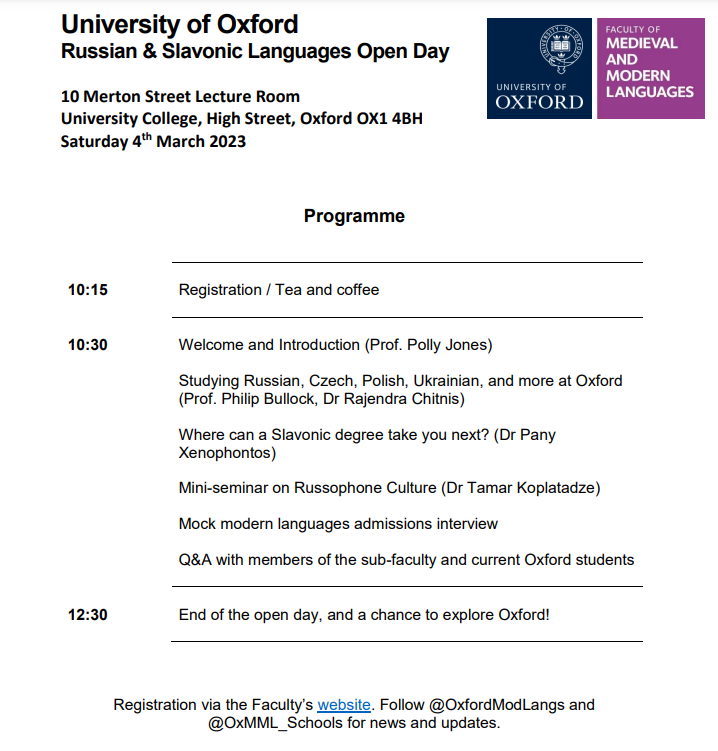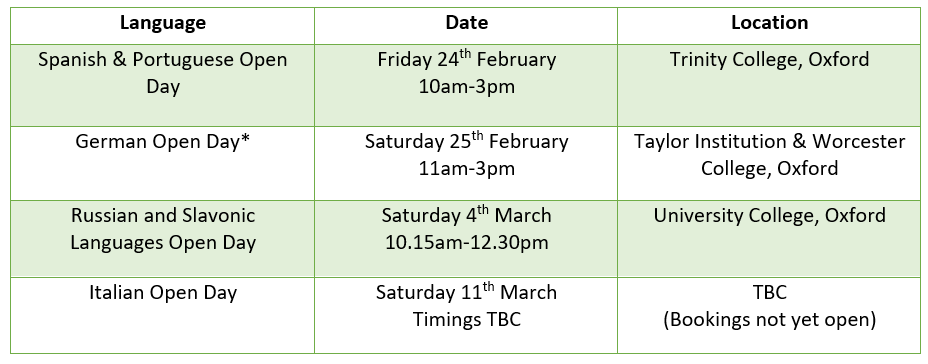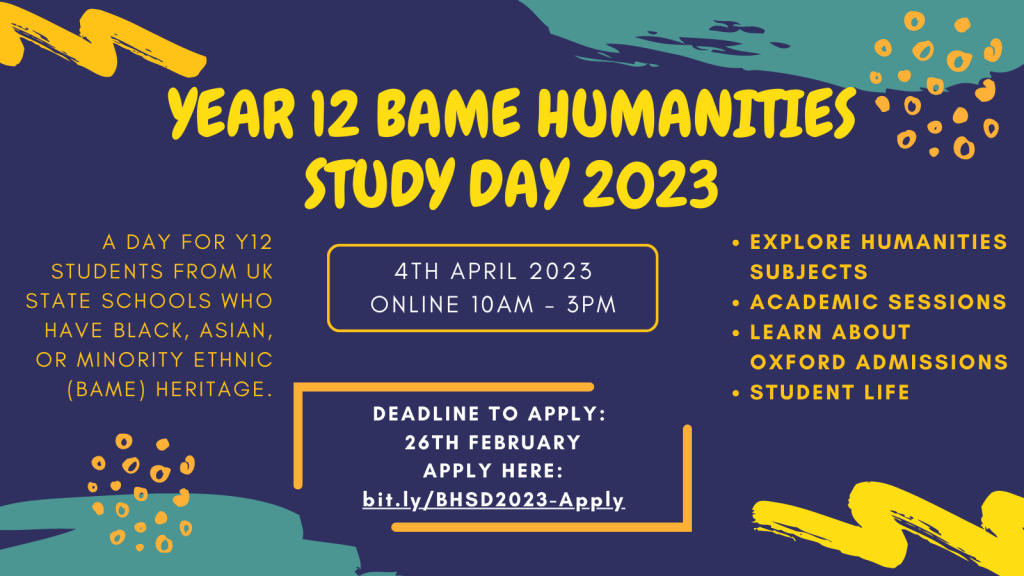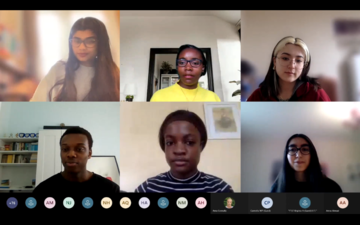In this week’s blog post, current French and Linguistics student, Josh Winfield, talks about his time in Montreal, a trip funded by his college. Over to you, Josh!
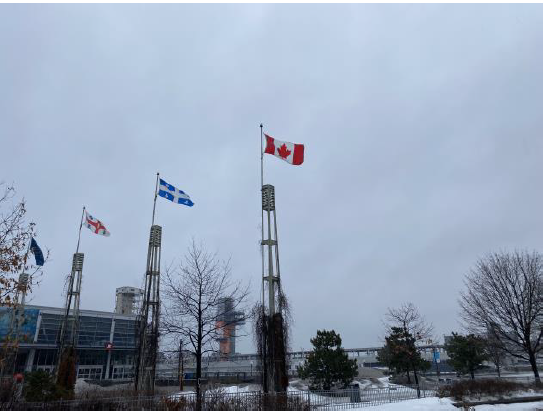
In March 2022, I was lucky enough to secure a travel grant from my college (St Hilda’s) to go to Montreal for 10 days. This blog aims to recount: what I found in Montreal, both from a touristic and student point of view; why I would recommend Montreal as a potential location for the year abroad; and to explore how Oxford colleges can help with course-related study trips.
If you were to look at the last ten years’ worth of year abroad archives, you would not be blamed for thinking that France is the only option for this exciting part of your degree course. When writing this blog, there were only a few students in the archives who had gone elsewhere. Whilst France is the potential obvious choice, considering its proximity to the UK, and the focus of French language courses on metropole French, I will aim to highlight some of the many advantages of Montreal as the location for your year abroad, or at least to inspire you to travel there as a student of French!
I have been interested in the French speaking region of Canada for a long time, particularly Quebec, using the question over its sovereignty as the focus of my Independent Research Project for my A-level French exam. However, I had never had the opportunity to actually visit it. When I started my course, I was shown the extensive list of bursaries that Oxford students could be eligible for, and as one of these, the travel grant (which is not just a Hilda’s thing, many colleges offer travel grants1) This generous funding allowed me to journey to Montreal, and paid for my accommodation. There are many funds available for undergraduates, with different colleges having differing amounts available, but for course-related travel, a well thought-out application is normally quite successful.
The language of the region

This is obviously one of the most important factors in the choice of the year abroad location, especially how much you are able to use it and learn.
Montreal, and the broader Quebec region are quite unique in the fact that they are both officially bilingual. And, whilst the news and nationalist politicians might make you believe that the speaking of English is minimal here, this is contrary to my experience, in fact the city operates as a melting pot for both French and English communication. 26%2 of the Montreal population acquired neither French nor English as their maternal language, and both Spanish and Chinese are commonly spoken here, making French a lingua franca amongst speakers. This phenomenon means that it is very easy to use French in day to day life, and that there is no presupposition as to which language you are going to speak. When I was there myself, at least 80% of the time I was greeted in French and spoken to in French as if I was a native speaker. This makes it very accessible for learners, and gives you the confidence to use the language more often.
Furthermore, the dialect in Quebec is very interesting (particularly for me as a Linguistics student too!). The accent is not only different to the standard metropole French in terms of pronunciation and slight lexical differences, but it is also not unusual to hear (even native French speakers) switch from French to English in a sentence for certain words, and even phrases. Despite the difference, after a few days there (and some YouTube videos) I got used to this, and didn’t have any trouble understanding people.
Worth considering too, is that the written language is almost exactly the same, making signs and menus easy to read for French students. What I have just discussed about the language may be off putting to some people , particularly the presence of English, but as a student with a disability myself, I am comforted by the fact that in a worst case scenario, doctors, hospital staff, and the majority of the public speak and can understand English. (Plus all the visa applications can be in English which is a huge bonus!)
The atmosphere of the city

Despite the fact that the city was just resurfacing from years of strict COVID regulations when I visited, the city life was still vibrant. There is a plethora of restaurants, night-time activities, sights to see and museums. At every turn there is something historically fascinating to see, an amazing piece of architecture, or just natural beauty. With a thriving Chinatown, Little Italy, Little Portugal and International Quarter, Montreal defends its position as one of the most diverse cities in Canada.
The city is passionate about inclusion and diversity3, and feels very safe, with the Economist naming it the 4th safest city in North America4. There is also a large Gay Village, which hosts many aspects of LGBTQ+ life, including Drag Shows and Montreal Pride. As well as the city life, or is worth mentioning that Montreal has some beautiful natural areas. In the centre of the downtown, Mont Royal (the city’s namesake) occupies a near 700 acre park, boasting beautiful views of the entire city. All around the city there are green areas, allowing you a break from the city feel of Montreal.
Travel and pricing
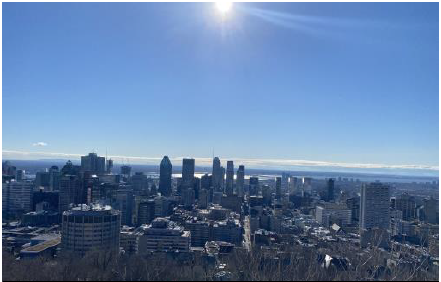
Inner city travel in Montreal is cheap, easy and fast. Operating on three lines, the majority of the city is only 15 minutes away from a metro stop. For a one way journey it was (when I visited) $1.60, $3 for a return. The metros are clean, open and easy to use. I used it the whole time I was there, and found it easier than the tube in London. In more general terms about cost of living, the city is of equivalent cost to Oxford and London pricing. However, when you take into consideration the exchange rate, the cost of living is not necessarily something to put you off (I also did live like a tourist for my time here – residential areas will no doubt be cheaper). With a student visa, most people are allowed to work up to 20 hours whilst studying which can help with the cost of your time there.
Final thoughts
In conclusion, with three excellent universities5, a welcoming accessible environment to speak and learn French, and an exciting and different city life, why not consider Montreal for at least part of your year abroad (or perhaps a shorter trip with a travel grant!).
Footnotes:
1) https://www.ox.ac.uk/students/fees-funding/international/scholarships-exchanges
2) http://www12.statcan.gc.ca/census-recensement/2006/as-sa/97-555/table/A7-fra.cfm
3) https://montreal.ca/diversite
4) https://www.jechoisismontreal.com/fr/vivre-a-montreal/vit-on-en-securite-dans-le-grand-montreal/
5) https://etudes-au-canada.net/liste-des-universites-a-montreal/

